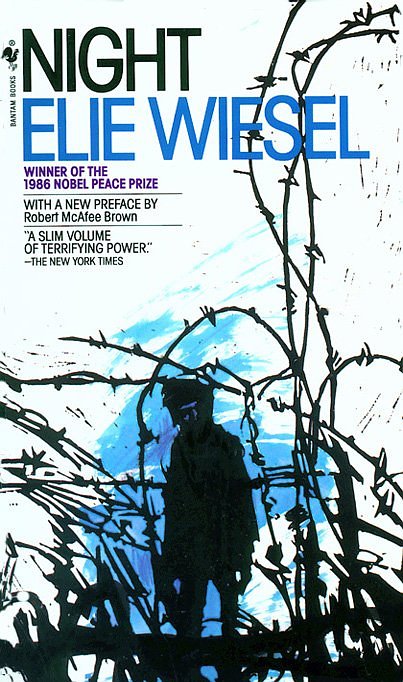This Chapter Summaries & Analysis of the Night Book by Elie Wiesel reveals the experience of the the narrator and covering important information in the Journal.
Night is a memoir by Elie Wiesel that was first published in 1960. Now Let us read our Chapter Summaries and Analysis of Night by Elie Wiesel Book first and then come here for a review!
Characters involved in the story:
- ELIZER
- SHLOMO
- MOSHE THE BEADLE
- AKIBA DRUMER
- MADAME SCHACHTER
- JUKIEK
- TIBI AND YOSI
- JOSEF MENGELE
- IDEK
- FRANEK
- RABBI ELIAHOU
- ZALMAN
- MEIR KATZ
- STEIN
- HILDA
- BEA
- TZIPORA
Night by Elie Wiesel: Chapters 1-3
Chapter 1:
Wiesel grew up in Sighet, a small town in Translyvania. He is a strict Orthodox Jew who is tutored by Moshe. When all foreign Jews are expelled, Moshe the Beadle is deported. He returns to Sighet with horrific tales. Nobody believes him.
Fascists gain control in Hungary and allow the Nazis to come. The Jews of Sighet remain in denial that anything bad will happen to them. Days later the town is ordered to evacuate. Eliezer’s family is part of the last group. Their former Gentile servant, Martha, warns them of impending danger and offers them a place of refuge. They refuse.
Chapter 2:
Eliezer and his townsmen are packed into cattle cars and suffer terribly. One woman, Madame Schacter, continually screams of a fire. She is silenced by her fellow prisoners. As the train arrives at Birkenau, they see smoke rising from chimnies and are inundated with the horrific smell of burning flesh.
Chapter 3:
The first selection occurs. Eliezer and his father lie about their age and avoid the crematorium. As they walk to Auschwitz they pass a pit of burning babies. When they arrive in their barracks they are disinfected with gasoline, receive a tattoo, and are dressed in prison clothes. Eliezer’s father asks to go to the bathroom and is clobbered by a kapo. The prisoners are then escorted to Buna, a work camp four hours away.
Analysis:
Wiesel emphasizes the human failure to comprehend just how evil humans can be. He and his family are warned several times to flee, yet they and the town find the truth impossible. Wiesel’s primary goal in publishing Night is to prevent another Holocaust from happening. He emphasizes the need to be aware of evil in the world and to believe first hand accounts of it.
His recounting of the miserable conditions on the cattle cars and the horrific events he witnesses at Birkenau are examples of first hand accounts that must be taken seriously in order to prevent something as horrible from happening again.

